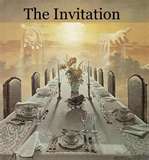17 Reasons why Christianity should NOT have succeeded....
"17 factors to be considered -- places where Christianity "did the wrong thing" in order to be a successful religion. It is my contention that the only way Christianity did succeed is because it was a truly revealed faith -- and because it had the irrefutable witness of the Resurrection." J.P.Holding
Factor #16 -- Miscellaneous Contrarium But the natural man receiveth not the things of the Spirit of God: for they are foolishness unto him: neither can he know them, because they are spiritually discerned. 1 Corinthians 2:14 "In this section we will be placing miscellaneous notes about teachings and attitudes of Jesus and early Christianity which were contrary to what was accepted as normal in the first century.
From Malina and Rohrbaugh's Social-Science Commentary on the Synoptic Gospels and the one on John as well:
"17 factors to be considered -- places where Christianity "did the wrong thing" in order to be a successful religion. It is my contention that the only way Christianity did succeed is because it was a truly revealed faith -- and because it had the irrefutable witness of the Resurrection." J.P.Holding
Factor #16 -- Miscellaneous Contrarium But the natural man receiveth not the things of the Spirit of God: for they are foolishness unto him: neither can he know them, because they are spiritually discerned. 1 Corinthians 2:14 "In this section we will be placing miscellaneous notes about teachings and attitudes of Jesus and early Christianity which were contrary to what was accepted as normal in the first century.
From Malina and Rohrbaugh's Social-Science Commentary on the Synoptic Gospels and the one on John as well:
- Jesus taught people to break even with family, if needed, for the sake of the Kingdom; he also indicated a highly inclusive assembly in a highly inclusive society. Christianity itself, had beliefs which would have alienated others. Was it worth the price?
- Relatedly, leaving the family usually meant forsaking material goods, in line with Jesus' demand to the rich young ruler.
- In his teachings Jesus often made reversals of common expectations that would have grossly offended the majority. The "Good Samaritan" parable is an example -- we all know that Samaritans were despised people; that would have been offensive enough! But few realize that the victim was also drawn up as someone broadly hated: The victim (and the Samaritan as well) were traders, who often grew rich at the expense of others, and were despised by the masses who saw them as thieves and would actually have sympathized with the bandits who robbed them! Jesus completely reversed the stereotypes in a way that would have shocked most of his listeners.
- A similar reversal: the invitation to, and acceptance of, Zaccheus. By dining with Zach, Jesus indicated fellowship with one whose values he shared. The crowd was dismayed, because tax collectors were stereotyped as "rapacious extortioners." Zach's pronouncement, often understood to mean he is now paying back what he has stolen, actually means he has been paying back already anyone he discovers he has cheated (even before he met Jesus!) and Jesus' fellowship is therefore understood as saying, "I believe him" -- whereas the crowd does not.
- We may not think much of Mary sitting at Jesus' feet while Martha does the housework; we may even sympathize, but the ancients would not have. Because a woman's reputation depended on her ability to run a household, Martha's complaint would be seen as legitimate -- and Mary herself, because she sat and listened rather than help, was "acting like a male"! This example would have been shocking to the ancients.
- The theme of being "born again" was a real shocker! When one was born, one's honor status was considered fixed at birth. Only extraordinary circumstances allowed for a change in honor status. Being born again would mean changing one's honor status in a very fundamental way, "a life-changing event of staggering proportions." Preaching a "new birth" would have been inconceivable! " J.P.Holding

